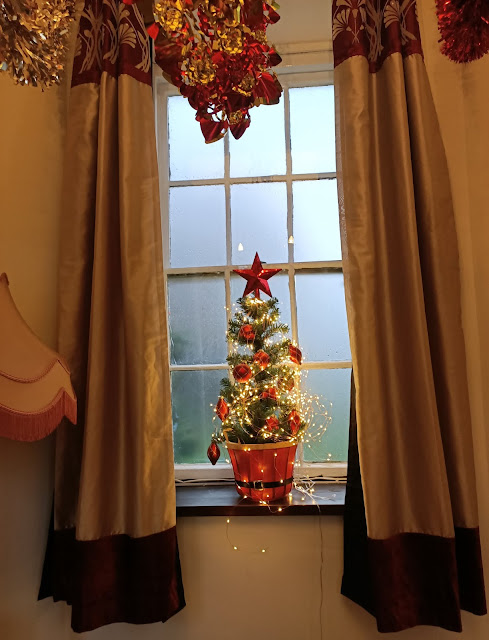Betley Court and the Daffodil King of Tooting
 |
| Betley Court Gardens today, a golden sea of daffodils. |
Clarification came this week that the self-employed who work outside, but could not work from home, such as gardeners could continue to work as long as they were able to abide by the UK Government’s social distancing rules. This was wonderful news, and a huge relief as it meant I could start gardening at Betley Court again.
The gardens at Betley Court are a sea of golden, as we are at the height of daffodil season. Something my late mother-in-law, Freda, once said to me came to mind this week. I was up at the barbeque area, and the fragrance of the daffodils was intense in the warm sun. Freda had mentioned that Betley Court’s daffodils must be very old varieties because they had a fragrance. She added that modern cultivars, bred for spectacular blooms have lost their smell. So, did this mean our daffodils at Betley Court are particularly old? It is true enough that daffodils are not celebrated for their scent nowadays, in the way that roses are. I needed to know more, so I took a photograph of each different type of daffodil I could find, and set off to do further research.
By coincidence, and article was ‘recommended’ to me on social media about a character known affectionately as ‘The Daffodil King of Tooting’, or Peter Barr (1826-1909), as he was more conventionally addressed. The article, written by Dr David March, of the Garden Trust was a revelation. How come I’d never heard of this man?
 |
| Peter Barr, plantsman, nurseryman, and daffodil enthuiast |
Peter Barr, it turns out, was a Victorian plantsman and successful nurseryman. He was obsessive about collecting, cataloguing and hybridizing plants, especially daffodils, and he loved to collect new specimens of his favourite plants. Famously, he travelled through Spain and Portugal to seek out new specimens. Legend has it that he travelled with little more than a blanket and a horse (in some versions of the story a donkey) and a negligible grasp of the local language, in search of new horticultural treasures. His misfortune was that a bandit was terrorizing the Iberian countryside at the same time, and Barr was caught and interrogated several times, as locals found him, and his appearance extremely suspicious. He was quite a force of nature, travelling as far as Japan and Australia in his 70’s to plant hunt and lecture on horticultural matters.
 |
| The truly fragrant N. Mrs Langtry |
“Wilde used to lecture on aesthetic colours,
and to him we owe more than to anyone else the taste for yellow, to my mind the
most beautiful colour in nature. He took the sunflower, but that is too
‘lumpy,’ and the people soon got tired of sunflowers. Then my daffodils
came—and they came to stay.”
By 1884, he convened a conference with the Royal Horticultural Society. This led to the establishment of the RHS Narcissus Committee, the forerunner of the Daffodil Society, founded in 1898. Barr’s influence is felt even today, as the system adopted by the RHS for the classification of over 30,000 daffodils they hold today, was devised by Barr.
 |
| N. Barrii conspicuous, named after the big daffodil man, himself. |
So, what connection has Peter Barr with Betley Court Gardens, I hear you ask, from your lockdown locations? Well, remember the photographs I mentioned of daffodils in the gardens? I compared them with a list of five “Lost Victorian Daffodils of Peter Barr” mentioned as being grown in Tooting by Peter Barr in his nursery, and found that four of the five matched daffodils we have in the gardens; Narcissus Mrs Langtry, N. Barrii conspicuous, N. Albatros and N. Von Sion. Of the four, N. Mrs Langtry is the most fragrant. N. Barrii is the most satisfying, being named after him in the Latin binomial. Ideally, I’d like to get some sort of verification of the daffodils in Betley Court Gardens, from an official body, but for the time being, it looks like what Freda told me may well be correct and we have a collection of Victorian daffodils here at Betley Court Gardens.
 |
| N. Albatros, a 'pheasant eye' daffodil type |
All best wishes during these difficult times!
Ladybird Su



Comments
Post a Comment